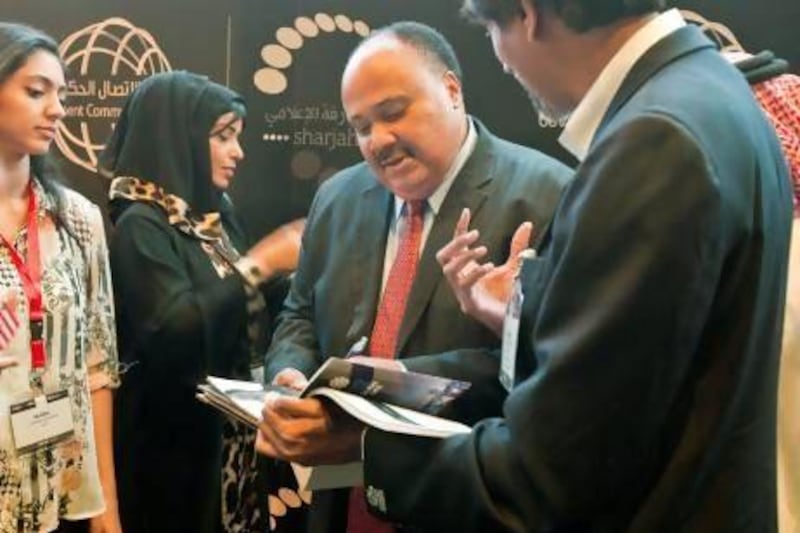SHARJAH // Lessons learnt from the American Civil Rights Movement in the 1960s could be applied to changes today in the Arab World, the son of Martin Luther King Jr said yesterday.
Martin Luther King III, a human-rights activist and eldest son of the late American civil rights hero, told an audience at the second Government Communication Forum that structure and dialogue are two areas where the Middle East could learn from his father.
He said Martin Luther King Jr, who was assassinated in 1968 at the age of 39, changed the violent protest mentality of African-Americans in the 1950s and 1960s by placing a structured approach of communication between them and the administration of the time.
“My father and his team, first and foremost, were extremely organised,” he said at the Expo Centre in Sharjah. “They placed a strategic and structured plan for the movement to take down the obstacles around them in a peaceful way.”
Mr King said there had to be communication between rival groups to achieve a result.
“If Martin Luther King had chosen the violent way he would have been excluded, but because he chose peaceful means and non-violent resistance, that has allowed him to achieve what he has,” he said.
Mr King added that interaction was vital between a community, its leaders and the opposing party.
“Dialogue has to be engaged with the government that is oppressing them and one must build bridges with them.”
Mr King said that, as with what was happening in some parts of the Arab world, the American Civil Rights Movement was not taken seriously at the beginning, and there was no trust or confidence from the opposition to its legitimacy.
“In 1955, when Rosa Parks rode a Montgomery Bus and was asked to sit at the back, she refused and was arrested. This, in turn, led to black Americans boycotting buses for 381 days,” he said.
“Sixty-five per cent of the bus users were black at that time and this affected the opponents of civil liberties economically, forcing Montgomery Buses to negotiate with the black community and make amends.
“After 381 days, black people were able to ride the bus to wherever they wanted to go.”
Despite that success, Mr King said, there were instances of clear racism and violations against the black community from the bus company, which didn’t stop for another year.
“This was not related to Montgomery Buses’ want for negotiations but this campaign made it clear that companies could lose if they get boycotted,” he said.
“Therefore, one should always build bridges to negotiate with those in power.”
Mr King said he would like to think that every leader wanted to be the best for his country, but leaders who ignored a certain sect or minority in their country would never achieve that because they had not engaged in a dialogue or given the people a chance to air their grievances.
[ amustafa@thenational.ae ]






